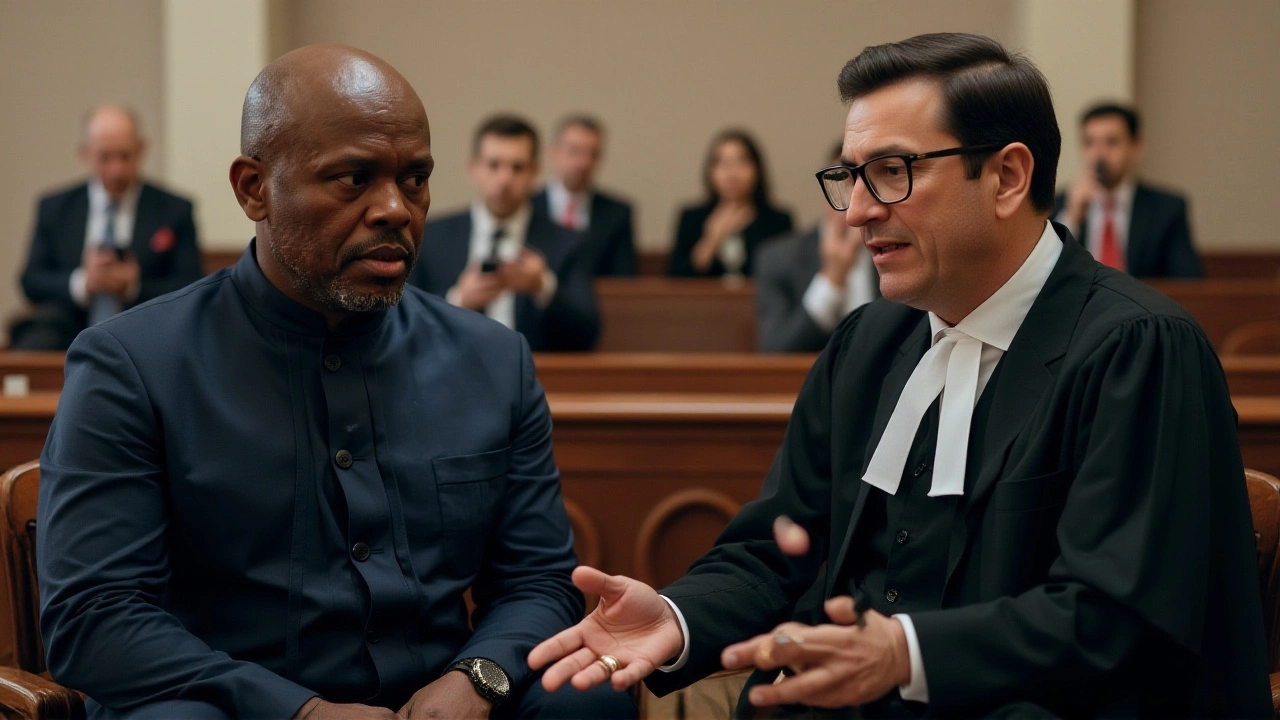Shadrack Sibiya – South African Politics, Anti‑Corruption & Current News
When you follow Shadrack Sibiya, a veteran South African journalist who specializes in political analysis and investigative reporting. Also known as Sibiya, he breaks down complex issues into plain language that anyone can grasp.
Shadrack Sibiya works within South African politics, the arena of government, parties and public policy that shapes everyday life in the country. This arena requires constant scrutiny because decisions made in Parliament affect everything from social grants to business regulation. In his pieces, Sibiya often highlights how anti‑corruption, the network of agencies and legal tools aimed at stopping graft influences policy outcomes and voter confidence. One clear link is that effective anti‑corruption agencies enable healthier political competition.
One recurring theme in Sibiya’s reporting is the role of the Economic Freedom Fighters (EFF), a populist party that pushes radical economic reforms and often clashes with the ruling ANC. The EFF’s actions shape the broader political debate, especially when leaders like Julius Malema make headlines. Sibiya’s coverage of Malema’s recent firearm conviction, for example, shows how legal battles can become political flashpoints, affecting public perception of both the party and the justice system.
What you’ll discover in the collection below
The articles indexed under this tag walk you through the latest twists in South Africa’s political landscape. You’ll find stories about court rulings that halt vehicle seizures, government moves to wipe out fake certificates, and debates over social grant adjustments. Each piece reflects Sibiya’s knack for linking a specific event—like the Warri court’s decision on tinted‑glass permits—to the bigger picture of governance and accountability.
Beyond the headlines, Sibiya often delves into the mechanics of institutions. Take the Federal Housing Finance Agency’s shutdown of Fannie Mae and Freddie Mac offices in New York: a move that ripples through mortgage markets and triggers regulatory reviews. By connecting such actions to the larger anti‑corruption framework, Sibiya helps readers see how local policies can have global implications.
Another focal point is the intersection of sports and politics, illustrated by coverage of South African football clubs, rugby talent pipelines, and even international tennis. While these stories may seem off‑beat, Sibiya points out that sport can act as a barometer for national morale and a platform for social change.
In the realm of technology and development, Sibiya highlights how new verification platforms—like Nigeria’s National Credential Verification Service—aim to eradicate fake certificates, boosting trust in public and private sectors alike. These initiatives require cooperation between ministries, tech firms, and civil society, a dynamic Sibiya explains without jargon.
All of this content sits under a single umbrella: the ongoing effort to keep South Africa’s democracy transparent, accountable, and responsive. By following Shadrack Sibiya’s reporting, you get a front‑row seat to the debates that matter, the policies that shift, and the personalities that drive change.
Now that you have a sense of the themes and connections, scroll down to explore the detailed articles that bring Shadrack Sibiya’s insights to life.

Court Rejects Shadrack Sibiya’s Suspension Appeal Amid Tender Scandal
Pretoria High Court dismissed Deputy Police Commissioner Shadrack Sibiya’s bid to overturn his suspension, intensifying a R360 million tender scandal involving senior officials.
Categories
- Sports (146)
- Politics (22)
- Entertainment (20)
- World (15)
- News (10)
- Lifestyle (8)
- Business (6)
- Technology (3)
- Health (3)
- Environment (2)



